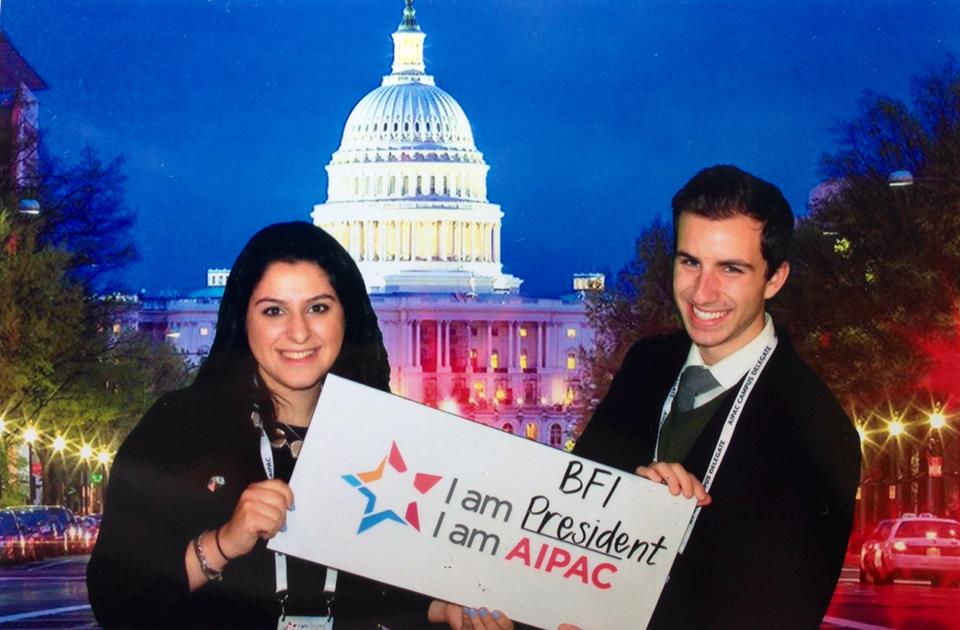The divestment bill most recently proposed to the Undergraduate Student Association Council on Feb. 25 significantly impacted the dynamics of Bruins for Israel; Eytan Davidovits, the newly-appointed president of the Israel advocacy club on campus, aims to alter those dynamics over the upcoming year. “Last quarter, everything went on hold when divestment came,” he recounted, “so the goal for next year is to be more prepared for divestment, so we don’t have to completely focus on that.”
This reflection on the club’s successes and weaknesses stems from a collective process involving the president-elect and the current board, as well as BFI presidents from previous years. “The club is adapting,” Davidovits explained. “We’re building off of previous work, we’re learning from past years, and we’re fully taking into consideration member feedback.”
Thus BFI is not just an annually renewed student organization — it is a collective longitudinal effort to strengthen Israel advocacy on campus. Unlike other student clubs, BFI does not merely choose its next president via applications; the current president nominates the candidate she or he sees best fit for the job — someone equipped with passion, reliability, character, and stamina — and then turns to previous BFI presidents for their “blessing.” In Davidovits’s case, Miriam Eshaghian (2013-2014), the current president, consulted with preceding presidents Jonathan Gilbert (2012-2013) and Tomer Schwartz (2011-2012) to ultimately appoint Davidovits the president of Bruins For Israel for the 2014-2015 school year.
Learning from the challenges of this past year, the president-elect plans to change the structure of the meetings to increase learning rather than usher in guest speaker after guest speaker. He elaborates that rather than having the board lecture while the general members passively listen, he wants to implement active learning through debates and discussions. Davidovits hopes that this style will allow members to attend the general meetings with an enthusiasm that will not fade with the formality of executive guest speakers and similar official events. “But there will still be events,” he clarified, “only fewer, and at a larger scale” and, he hopes, with a larger turnout.
Ultimately, these steps are an effort to increase participation, both within the Jewish community and UCLA as a whole. “We see a lot of participation among the freshmen and sophomores, but then it declines as they become juniors and seniors,” he discloses. Moreover, he aspires to “form real relationships with [non-Jewish groups],” not just for political reasons. “Give before you expect to receive” is his motto, so BFI members can expect to collaborate with other student-run organizations next year.
When asked about his inspiration for these reforms, Davidovits responded that “people are not ready to talk about Israel with their friends, so we need to make people comfortable to speak confidently about this increasingly controversial country.” His sentiments are rooted in the brewing hostility on UCLA’s campus during the week of the divestment council meeting. “Every time I go back [to Israel], it’s like it’s home and there’s an unshakable feeling that you can’t get over. Then you get to this campus, and everything [screams] ‘Diversity!’ and ‘We love everybody!’ but then hear crazy, awful things being said about Israel, [to which] people don’t know how to respond. You feel like you have some sort of a responsibility to not overlook these things and let them go unnoticed. You can’t let people’s silence go unnoticed.”
With his passion for Israel and determination to effect further campus involvement, Davidovits is bound to provide an effective environment for Israel advocates to garner their voices to support the country they admire and cherish so much on the campus they call home.
******************************
BFI Board applications are open through Friday 4/25/14 and are due by 5 pm. Students interested in joining can find the application at http://www.bruinsforisrael.com/application/.

